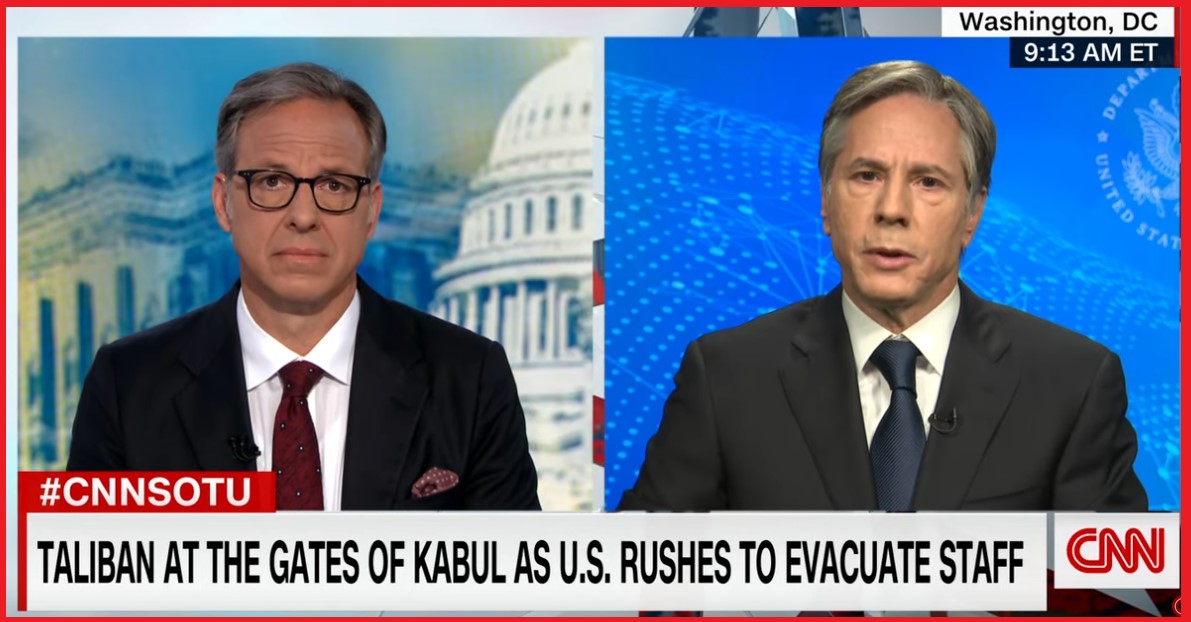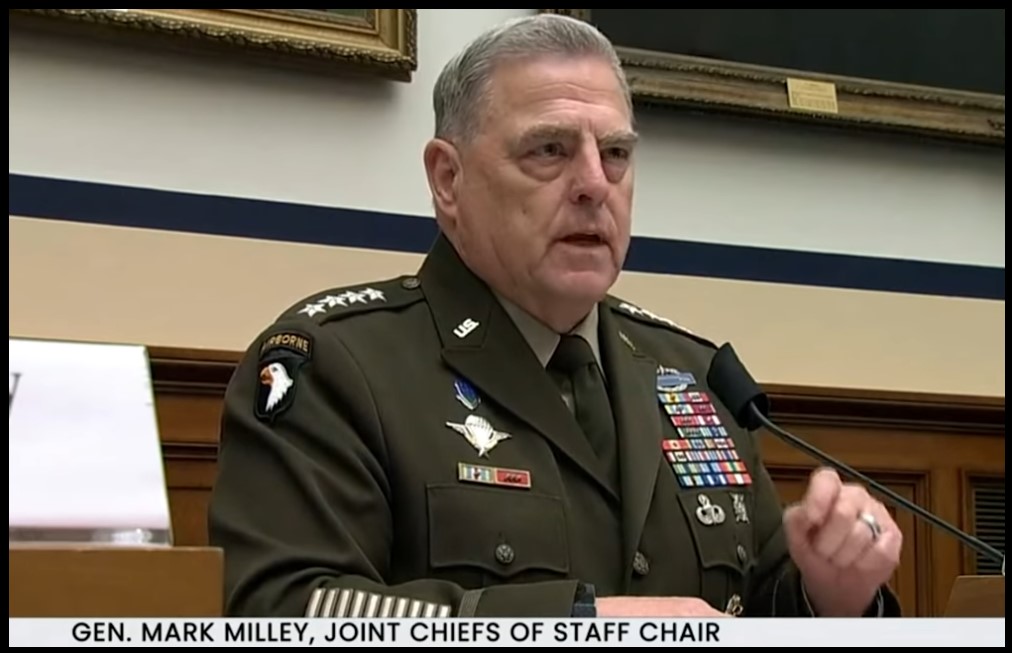The COVID pandemic has witnessed the exercise of state “police powers” on a scale and scope unprecedented in America’s peacetime history. Out of fear of contagion, massive amounts of private property in the form of shops, restaurants, bars, and other businesses were peremptorily seized and shuttered. The rights of landlords to collect rents and evict tenants were suspended. The ability of people to cross from one state to another was hobbled by regulations, quarantines, and delays. And most of this was accomplished by governors and mayors acting by decree, with only the most tenuous of statutory authorizations.
Initially implemented for what was to have been a brief period of medical unreadiness, the restrictions and impositions were extended month after month in the name of protecting Americans from a threat the specific magnitude of which was never clearly defined. Although some raised concerns about the legality of and need for these coercions, most Americans obediently submitted to them.
The purpose here is not to justify the particulars of what seems to us to have been a huge and clumsy overreach. It is instead to point out what such robust assertions of police powers could achieve, constitutionally and politically, if put to different and more legitimate ends—protecting Americans’ health and safety against what predictably ensues when the federal government abandons one of its primary charges. It is a road which, if taken, could not only repair the harms of gross federal nonfeasance but usefully up the ante in the struggle to thwart the Left’s accelerating efforts to unmake America. In other words, a course of action that could materially improve public health, safety, and welfare while also firing a powerful salvo across revolution’s bow.
We propose calling this the doctrine of “protective resumption” whereby, finding that the national government through negligence, inability, or malice had ceased to meaningly perform one or more of its core functions—thus endangering the health, safety, and welfare of a state’s citizens—the states either severally or acting in concert among themselves, could resume their core police power functions without being preempted by federal law. The states, it should be stressed, would not thereby be taking over national government functions, they would only be shielding, via recognized police powers, their citizens from the effects of these functions’ abandonment. This distinction is important since it would place limits both on what the states could do and how long they could do it. Moreover, it would not allow them to exercise any powers specifically denied the states by the U.S. Constitution.
Constitutional Limits on National Authority
Testing the limits of national authority has a long history in American politics. Most frequently it has taken the form of state resistance to the positive exercise of federal power in a manner state leadership found abusive. Prior to the Civil War such confrontations were recurrent and touched a wide variety of issues, conspicuous among them the right of interposition claimed by Virginia in response to the Alien and Sedition Acts, the nullification threat of South Carolina against “the Tariff of Abominations,” and Wisconsin’s and Vermont’s efforts to block enforcement of the Fugitive Slave Act.
The secessions of 1860-1861, of course, were the most dramatic instances of this kind of resistance, but the defeat of the Confederacy and the adoption of the 13th, 14th and 15th Amendments didn’t bring the phenomenon to an end. Unfortunately, post-bellum state’s rights claims became the favored preserve of southern segregationists, who, unlike many of their pre-Civil War forebears, asserted them against rather than on behalf of the claims of liberty. More recently, however, this long constitutional story has taken yet another turn in the form of “the sanctuary movement,” wherein leftist state and local governments, as well as institutions like public and private universities, have declared a policy of non-cooperation with the national government in immigration and drug law enforcement.
The ante- and post-bellum cases share a latent dimension. Not only were they efforts to impede what were deemed improper exercises of national power, they were also signals of a willingness to provoke a more general showdown should the feds not desist in their course. In other words, they were calculated exercises in political brinkmanship.
Few state actions, however, have been aimed at remedying national abdications of authority. The U.S. Constitution’s framers and most subsequent state and local leaders feared the expansion, not the shrinkage, of national power. Increasing centralization, after all, had been the historical norm. In general, it is still the prevalent trend. But such is the wrecking mentality of our present rulers that when they see an opportunity for a useful sin of omission, they don’t pass it up.
By far the most glaring example of this today is at our southern border which, in defiance of duly enacted and popular laws, has been thrown open by the Biden Administration to just about all comers. This is not only a violation of the presidential oath to defend the Constitution and the laws enacted under it, but part and parcel of a larger project to transform our civic order through demographic change. It is therefore anti-republican in both form and substance. But more precisely to our point, in exposing the citizens of America’s states to a host of ills involving their health, safety, and general welfare, this desertion of responsibility, when accompanied by claims of preemption, impedes the states from exercising their own core police powers. And not in a small way, but extensively.
States Can Address the Border Crisis
The people now streaming across the Rio Grande can’t be subject to effective background checks and there is ample evidence that significant numbers of them have active criminal ties or histories. In fact, crime has been spiking in many border localities, and gangs that operate throughout the United States are profiting enormously off their coyote and smuggling roles. Immigrant health status is also difficult to ascertain, although many of them have tested positive for COVID, and most are unvaccinated.
These illegal migrants will also predictably depress the wage levels of American workers. As was unanimously recognized by the Supreme Court nearly a half century ago in De Canas v Bica (1976), safety, health, and conditions of employment are all at the heart of state police powers and usually exercised in tandem with counterpart federal powers. What happens, however, when federal dereliction blows a gaping hole in the system’s protective curtain?
The national government’s primacy over border control derives from its authority over foreign, defense, and naturalization policy, but state activity in this realm, pursuant to the reserved police powers of the states, has always been recognized as valid when not clearly preempted by federal authority. Many states, for example, maintain overseas offices aimed at bringing foreign businesses, investment, and tourists to their jurisdictions. Additionally, states have some recognized authority over the movement of interstate commerce. Thus, California and Hawaii restrict the importation of certain fruits and vegetables. Typically, these areas of overlap provoke little controversy, because in the past there has been a shared understanding of their ultimate purpose, the promotion of a common national interest. With the national government’s revolutionary turn, this understanding has evaporated.
The U.S. Supreme Court in Arizona v. United States (2012) ruled 5-3 that the states can’t enforce immigration law independently of the federal government. But the court continued to recognize that the states retain and can exercise overlapping police powers when not expressly or clearly preempted by the federal statutory scheme. The country’s experience during the COVID-19 pandemic has suggested that state primacy with respect to police power can permit profound intrusions into what would otherwise be considered federal prerogatives when health and safety concerns are sufficiently acute, a reservoir of potential power perhaps comparable to that of the commerce clause, though operating in the opposite direction.
At the pandemic’s height, state actions to limit COVID’s spread were sufficiently draconian to plunge the nation into what, by most measures, would be considered an economic depression. During this period of exigency, the federal government stood aside while states took actions that substantially constricted the flow of commerce and, in some cases, people across state lines. Even after the Trump Administration began having second thoughts about the need for these strictures, it resisted calls to invoke the commerce clause to override the strangulations, communicating deep respect for state police power authority.
Needless to say, the immigration crisis differs in important ways from that presented by COVID, and Arizona v. United States leaves the states’ direct role in immigration enforcement, at the most, as one of no more than loyal federal lieutenancy. But the COVID experience also suggests that the invocation of police power jurisdiction, rather than border control as an end in itself, could cast matters in a different light.
No one has ever doubted national primacy over the flow of interstate commerce. Establishing it was a key reason for the Constitution’s ratification, and it has been used repeatedly and with monumental consequence to anchor many other assertions of federal power only distantly related to commercial transactions. Yet during the COVID emergency, the states’ exercise of their police powers had a massive impact on interstate commerce.
What we’re suggesting, then, is the states may have a constitutional opportunity to curtail the flow of “undocumented migrants” into their territory, precisely because by being undocumented these migrants imperil citizen health, safety, and welfare. The national government may not care about the dangers their chaotic entry procedures present, but the states have a clear responsibility to address them. As a result, they should be able to close their borders to those to whom the federal Congress itself has denied entry until such time as the irregular flow ceases. This would not involve the states changing statutory immigration policy with respect to total number, right of entry, or any other of its legal aspects, nor would it affect questions like visa overstay, birthright citizenship and chain migration, where health and safety effects are less apparent. Rather it would be a remedy tailored to address police power issues pure and simple.
In Texas, Greg Abbott has already made a partial start down this road, supported by a number of other Republican governors. On May 31, Abbott declared that a public health and safety disaster existed in 34 counties (there have since been several additions and subtractions from the list) due to the mass surge of illegal migrants across the Rio Grande. State law enforcement, he announced, would arrest illegal migrants who committed trespass, smuggling, and human trafficking, and regulations would be waived to help counties provide alternate detention facilities for those arrested. He has also talked of completing the border wall. Potential border wall aside, his approach centers on the enforcement of specific state laws rather than a more general assertion of constitutional authority.
Not every illegal migrant trespasses on private property or engages in smuggling and trafficking. Curbing these crimes by themselves would thus be unlikely to staunch the migrant flow. They haven’t made that much of a dent in it so far. Furthermore, the construction of barriers will certainly require more authority than can be found in these limited claims.
Nonetheless, this limited approach may be the most prudent one for now. The felt sense of crisis does not yet seem to be widely enough shared for a more encompassing claim to have a good chance of prevailing in the courts of public opinion and, therefore, law—where the feds are now suing Texas.
How to Invoke the Doctrine of Protective Resumption
Under what circumstances, then, might the doctrine of protective resumption be successfully invoked?
Timing would be of the essence. The Biden Administration isn’t yet wholly beyond its honeymoon. But its actions have been sowing whirlwinds—stagflation, diplomatic disasters, questionable financial relationships with foreign corporations—that could tank its public support and generate organized protest on a wide scale. There might also be some event at the border that elicits unusual national alarm. These would help prepare the political and constitutional battlefield for the bold move we’re proposing.
The details would have to be a matter of careful forethought and preparation. But to paint the possibilities in broad strokes, a governor might mobilize state law enforcement and national guard units to take up positions at commonly used crossing points, and simply turn back illegal entrants, or place them in state holding centers from which they would be returned by air or other conveyance to the countries from which they entered. Equipped with a more robust constitutional mandate, eminent domain could also be used to acquire land at or near the border to erect walls and place other impediments to unauthorized entry. And this shouldn’t be by unilateral gubernatorial action, but done in concert, if at all possible, with the relevant state legislatures. Checkpoints would also have to be established along the lines demarcating borders with states that didn’t join in this effort in order to prevent migrant circumvention. Here COVID precedents could be drawn upon.
As in the case of any deliberately thrown gauntlet, the bolder these policies, the better. Attempts by the national government to obstruct them would be fought in the courts, but even more importantly in the arena of public opinion, where the emphasis would be on the patriotic character of the moves and the national emergency that dictates them. Supporters could be directed to the borders, where they would demonstrate and provide cheer and comforts to the police and guardsmen. Demonstrations would also be mounted in major cities, making this a high intensity, media saturating, citizen-involved campaign.
The subsequent juridical, political, and public relations combat would be key to the strategy’s success. The grand battle we now face is whether we are to remain a nation in control of its territory and citizenship, and under the rule of law. In betraying its legal obligation to enforce immigration law, the Biden Administration puts itself in the worst of all possible political positions. If state action can succeed in doing what the feds could do but won’t, the legal arguments may prove secondary to those that derive from the very definition of a sovereign nation state.
As already observed, the fed’s immigration default is only a symptom of something more malign, a radicalized national government out to destroy traditional America by whatever means are deemed necessary and expedient. Defeating this top-down sedition requires a careful choice of political battlefields. The best ones on which to fight are those where the stakes are highest, the derelictions most obvious, and common sense least pressed to discern right from wrong. Nations cannot exist without borders, so one might hope that anyone retaining a shred of patriotism and common sense would support those levels of government committed to their preservation. Most polls suggest large majorities would back such policies.
Protecting the Rights of Citizens
The states and the people have the right to protect themselves from abuse of government power by any branch and at every level. As the 10th Amendment makes clear, the Constitution doesn’t incorporate a surrender of these rights. What’s being proposed here—a resumption of the states’ reserved police powers in the face of abdication by the federal government of its own primary responsibilities—is consistent with that amendment.
The doctrine of protective resumption offers a way to safeguard the rights of citizenship when the issue is not how powers are being exercised but how they are not. A government that doesn’t perform its core duties is, to that extent, not a government at all. Just like fallen banners, core powers left lying in the dust can be picked up by those next in command, assuming their own powers give them a good reason to do so.
State police powers can’t be invoked to remedy every federal dereliction, but there may be areas other than immigration where they can, the case strengthening as federal abdications become more basic and done with mens rea. Potentially it could be invoked in any domain of federal authority so elemental as to put citizens at grave risk if left unattended. Two besides immigration jump to mind as possibilities: maintaining a stable national currency and securing equal protection of the law, though in both cases implementation of protective resumption would be more complex and difficult than with respect to border security.
The Constitution bestows on the national government a monopoly over coinage and prevents states from making anything but gold or silver “legal tender.” Nowadays coins constitute an infinitesimal—though still useful—percentage of the total amount of money in circulation. Even paper currency, which Congress has divorced from precious metal backing, holds but a minority share of all total U.S. money. Most currency now exists as a bank-created abstraction, with the federal government and the Federal Reserve the ultimate masters. During the early history of the republic much of the “money” in circulation was issued by private banks and guaranteed by them only. More recently, privately issued cryptocurrency has come onto the scene, and may have a glowing future as a refuge from the debauchment of the official money supply.
America has never experienced the kind of hyper-inflation that once wracked countries like Argentina, Zimbabwe, and Weimar Germany. But should hyperinflation ever loom in the United States, state governments could mitigate the situation by converting their tax receipts into sound digital alternatives or foreign currencies, to be used—for those who prefer it—as payment for state salaries and vendor payments. State bonds could also be paid off in these alternative media for those holders who preferred it. Without formally declaring anything other than the dollar as legal tender, the states nonetheless could support the circulation of better options—providing citizens with a safe harbor against federal monetary spoliation.
Indifference to currency as a reliable store of wealth is as much a danger to the general welfare as is indifference to the condition of our international borders. State resumption of its police powers in this area could therefore be a justifiable option if the feds destroy the U.S. currency’s value.
Enjoying equal protection of the laws is at the heart of safeguarding the general welfare. If the national government refuses to guarantee equal protection in order to politically persecute its opponents or pursue notions of group rights as now embodied in the Left’s illiberal concept of “equity,” another opportunity to invoke protective resumption might arise. If under the color of the law the feds egregiously subvert individual civil rights, the states might assume their enforcement as another aspect of residual police power. Since federal abuse in such situations would probably involve acts of commission as well as omission, state action would have the character of protective shielding as well as protective resumption. This would, of course, produce the highest level of direct state-federal confrontation.
By removing claims of federal preemption, these resumptions of police power would effectively peel functions away from the national government, at least temporarily, and relocate them in the states. In that sense they might be seen as constituting stepping stones to complete severance. But they are not identical to secession. They would be intended instead as grave warnings about the consequences of federal recklessness, and the need for remedy and reconciliation. Apart from the public welfare good that they would accomplish, they also would make it clear to national elites that their domineering and abusive policies were being met with a determined push back.
Only one side of our cold civil war has thus far shown any real resolve—the wrong one. Effective checks and balances are matters of not just of form, but of spirit. A policy of protective resumption, launched at the right moment and over the right policies, would be a bracing way of returning some symmetry to the correlation of American political forces. Without such rebalancing, the dissolution of our republic and its framework of freedom will inexorably proceed.













 The AP is reporting that emergency evacuations have sped up the timeline to avoid the most embarrassing optics for the Biden administration. An additional 1,000 troops from the 82nd Airborne are en-route to support the previously announced 3,000 U.S. troops handling the evacuation. That is a total of 4,000 new military troops sent to Kabul to support the previous 1,000. Keep in mind the original Afghan withdrawal was 2,500 troops in total.
The AP is reporting that emergency evacuations have sped up the timeline to avoid the most embarrassing optics for the Biden administration. An additional 1,000 troops from the 82nd Airborne are en-route to support the previously announced 3,000 U.S. troops handling the evacuation. That is a total of 4,000 new military troops sent to Kabul to support the previous 1,000. Keep in mind the original Afghan withdrawal was 2,500 troops in total.





